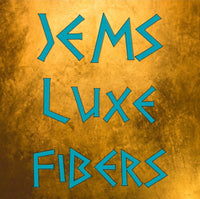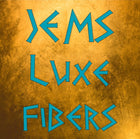Minotaur Bundle
The Minotaur was one of the most famous and gruesome monsters in Ancient Greek mythology, usually portrayed with the body of a man and the head of a bull. The Minotaur was born from the unnatural union of a Cretan Bull and Pasiphae, wife of Minos who was the King of Crete.
The story of the Minotaur begins with the death of Asterius, the sacred king of Crete. Since he was childless from his marriage with Europa, Minos – one of Europa’s children with Zeus and a stepson of Asterius – assumed the right to the throne, declaring to his rivals that this was the supposed will of the gods. To prove this, he prayed to Poseidon to send him a bull from the sea, which he promised to solemnly sacrifice to him afterward. Poseidon did his part, and Minos won the crown.
However, the bull – all white, virile and mighty – was just too beautiful to be slaughtered and Minos decided to sacrifice a different one in his place. Short-tempered by nature, Poseidon was angered by this act, so much so that he made Minos’ wife, Pasiphae, fall in love with his gift, the Cretan Bull. Incapable of resisting to the temptation, Pasiphae persuaded Daedalus to fashion for her a hollowed wooden cow, in which she hid until the Cretan Bull finally mated with her. The Minotaur was the anomalous offspring of this unnatural union.
Needless to say, Minos was appalled by the sight of Pasiphae’s offspring and soon after the Minotaur’s birth, to cover his disgrace, he ordered Daedalus to build a structure so elaborate that not only it would make it impossible for the monster to leave it, but it would make it difficult for anyone going inside it to find his way out. Daedalus devised a plan for a vast underground maze of hallways and passages we now know as the Labyrinth.
Soon after, the center of the Labyrinth became the Minotaur’s dark dwelling place. The Minotaur resided at the center of the Labyrinth, designed specifically to hide him from view at the request of Pasiphae’s husband, Minos. There, the monster was regularly fed with human flesh, specifically that of fourteen young Athenian noble men and women. These were sent as a sacrifice by the city of Athens to Minos on a yearly basis (or every nine years, according to some) in recompense for the death of his son, Androgeus, whom the Athenians had once killed out of jealousy for beating them at the Panathenaic Games.
Theseus, the founding hero of Athens, wasn’t someone who’d turn a blind eye to the sufferings of his fellow citizens. So, when the time for the third sacrifice came, he volunteered to go to Crete. Fortunately for him, Ariadne, Minos’ daughter, fell in love with him and decided to help him to the best of her knowledge.
She begged Daedalus to tell her the secret of the Labyrinth, until, finally, the master-craftsman caved in. At his advice, Ariadne gave Theseus a ball of thread, which the hero used to navigate himself inside the structure, comforted by the fact that he would always be able to find his way out. Finally, at the center of the Labyrinth, Theseus came across the Minotaur and, after a long and exhausting fight – whether with his bare hands or a club – he finally managed to overpower the vicious monster. Both Crete and Athens were finally freed.
This set is shown in our Luxe Sock base. It is available in all bases.
Care of your hand knit garments
Please hand wash cold or lukewarm water and lay flat to dry. Even though this yarn does contain superwash merino, I do always recommend that you hand wash your knitwear. We use colorfast acid dyes for dying our yarn, and rinse until water runs clear. There may be a chance that some dye may bleed slightly in the first wash of your finished item. This does sometimes happen for speckled yarn and stubborn colors that are prone to bleed. For the first couple of washes, hand wash separately to be sure that no further bleeding.
There are no dye lots. We always try to sell from same dye lots but if not sure, we recommend blending the skeins as you work. Color saturation can differ from different dyelots.





